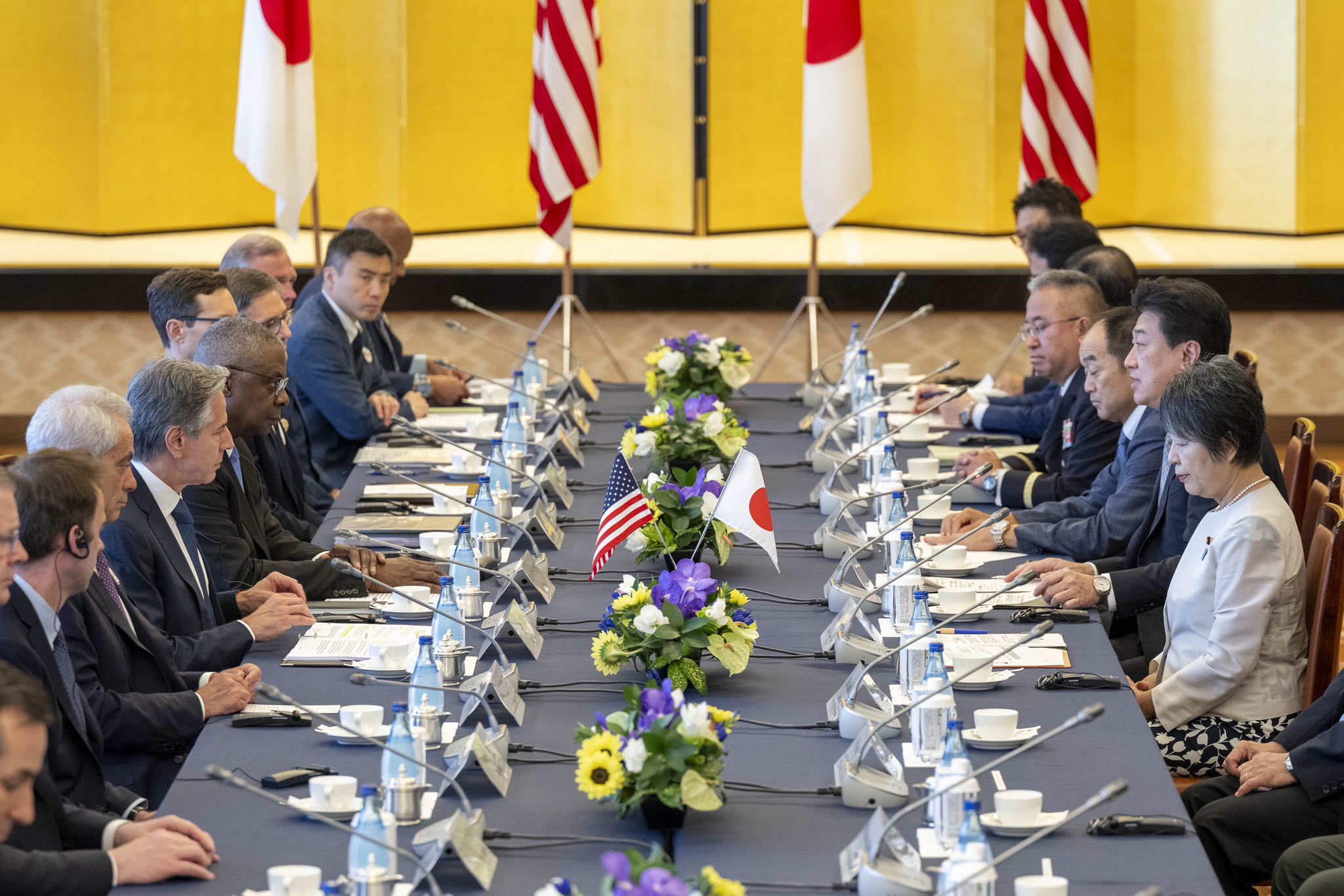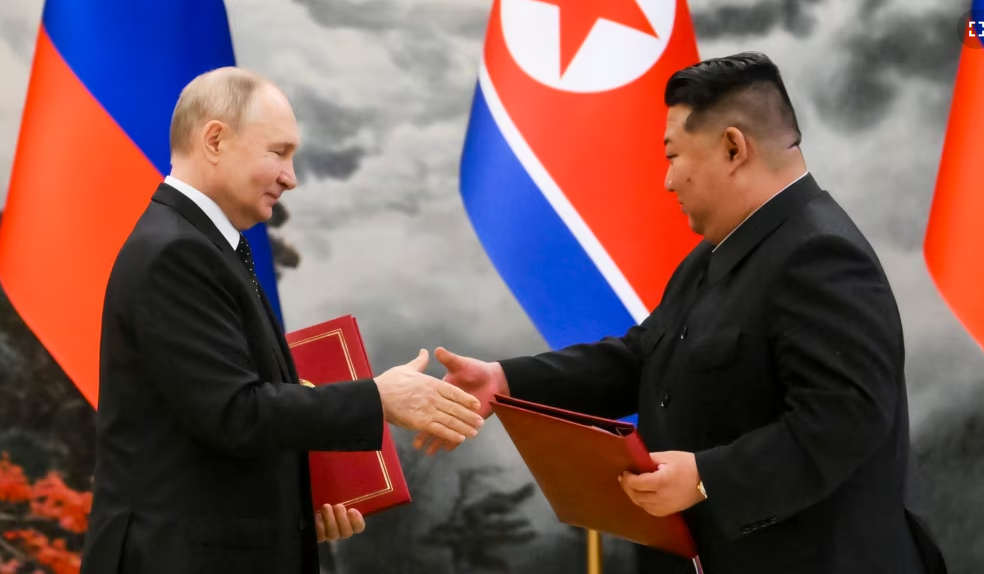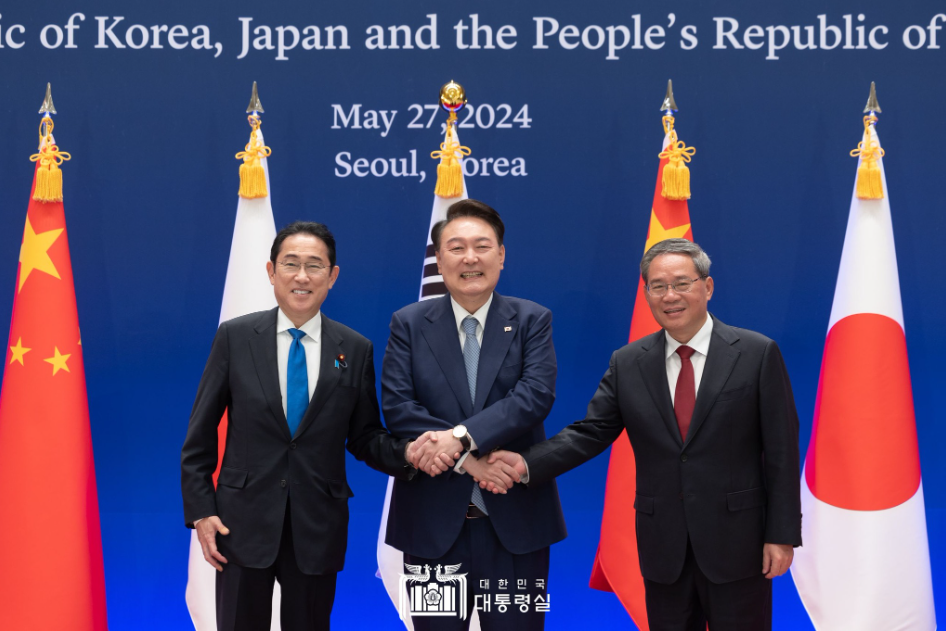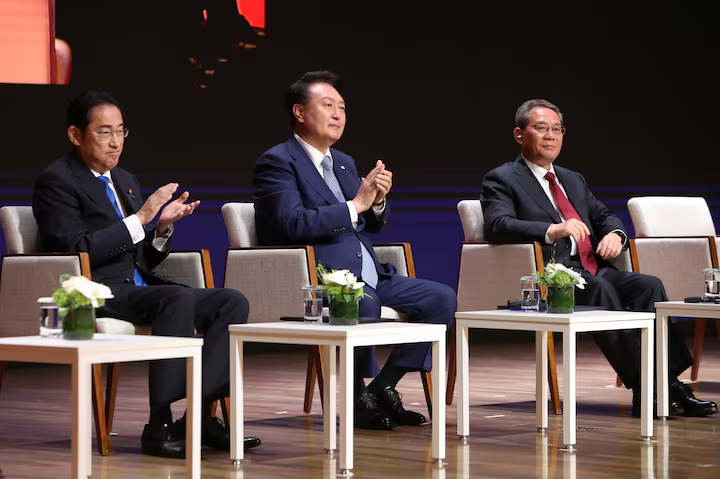
Zhang Yun, Professor, School of International Relations, Nanjing University
Aug 14, 2024
Tokyo has questioned the reliability of U.S. nuclear protection and has put the issue high on the agenda. Lasting peace in East Asia, however, cannot be achieved simply through nuclear power. The way forward is to focus on common security efforts and include all parties in the discussion.

Zhang Yun, Professor, School of International Relations, Nanjing University
Jul 04, 2024
While China and the United States are the most important external stakeholders on the Korean Peninsula, Russia has focused more on its strategic interests in the region out of concern over security issues in Europe. To achieve enduring peace, communication must resume under the multilateral framework of the Six-Party Talks.

Brian Wong, Assistant Professor in Philosophy and Fellow at Centre on Contemporary China and the World, HKU and Rhodes Scholar
Jun 28, 2024
The 2024 Trilateral Summit marked a significant step in Northeast Asian diplomacy by reestablishing high-level cooperation among China, Japan, and South Korea after a period of interruptions. Despite underlying tensions and complex historical grievances, the summit underscored the importance of pragmatic, issue-specific collaboration and highlighted a strategic pivot towards bilateral engagements as a means to foster regional stability and economic integration.

Warwick Powell, Adjunct Professor at Queensland University of Technology
Jun 05, 2024
A positive peace is needed, one that weaves prosperity and security together for all. The DPRK’s economic connection to the world via Russia is a potential game changer that could reframe possibilities for the Korean Peninsula, and with it impact the dynamics of the North Asia region. Regional leaders should take up the challenge.
Back to Top

- China-US Focus builds trust and understanding between the U.S. and China through open dialogue among thought leaders.
- Our Offerings
- Topics
- Videos
- Podcasts
- Columnists
- Research Reports
- Focus Digest
- Stay Connected
-
Thanks for signing up!
- Get the latest stories from China-US Focus weekly.